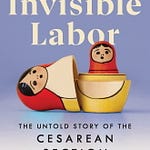“Just telling a mother to sleep is as ridiculous as telling her to fly. Protecting her sleep requires challenging deep cultural and structural factors, both within families and within the medical establishment.” – Leistikow et al. 2022
Sleep and stress have a bidirectional relationship. Stress affects sleep. Sleep affects stress. Physiologically and emotionally. Sleep is a key recommendation for decreasing stress load. And decreasing stress is a key recommendation for improving sleep quality.
Like stress, sleep disruption is generally accepted as a part of life, a part of parenting, a part of motherhood, a biological repercussion of the physiological changes in a cycling body. But there is little to no research to understand exactly how, or even which, physiological changes are responsible for sleep disruption across the female reproductive lifespan.
Like stress management recommendations, sleep hygiene advice falls into a similar narrative trap. Good ‘sleep hygiene’ revolves around the frustrating reminder that sleep disruption is your problem to fix. The world will acknowledge that you have a lot on your plate that increases your stress load and affects your sleep but skips right over that and points out how fixing it is your problem alone.
Despite acknowledging how the outside world could affect women’s sleep, the sleep recommendations fall into the same trap as stress and stress management – sleep is considered an individual problem with individual solutions.
This is false logic.
We need to flip the narrative and discuss protecting sleep as part of the strategy…
LINKS:
Substack about her sleep prescription + her article in Slate Reducing the stress of modern mammalian motherhood
Leistikow et al. 2022 — Prescribing Sleep: An Overlooked Treatment for Postpartum Depression














Share this post